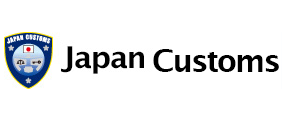4028 Outline of the Agreement between Japan and the Swiss Confederation for an Economic Partnership (FAQ)
In September 2008, Japan and Switzerland confirmed that agreement in principle has been reached on the Agreement on Free Trade and Economic Partnership between Japan and the Swiss Confederation (JSFTEPA) on the basis of a series of negotiations since May 2007. The JSFTEPA was signed by both countries in February 2009, and entered into force in September 2009.
The JSFTEPA became the tenth economic partnership agreement, following those concluded with Singapore, Mexico, Malaysia, Chile, Thailand, Indonesia, Brunei, all of ASEAN and Philippines.
The JSFTEPA is aimed at enhancing economic partnership between the two countries by promoting liberalization and facilitation of trade and investment and advancing cooperation in such wide-ranging areas as movement of natural persons, electric commerce, and intellectual property. It is expected that the entry into force of the Agreement will further vitalize the economies of the two countries and tighten their bilateral relations through strengthened economic partnership.
2. The Significance of the agreement for Japan
Switzerland is Japan's 27th export partner and 23th import partner (2022 Trade Statistics, Ministry of Finance).
The JSFTEPA is the first Economic Partnership Agreement with European country for Japan. It is expected to contribute to further strengthen the economic relationship and is introduced framework for an origin declaration by an approved exporter, in addition to the system of certificates of origin issued by competent government authority. The JSFTEPA also achieves high level commitment in trade in service, investment and intellectual property, and stipulates detailed regulation for electronic commerce.
3. The key elements in the agreement
(1) Trade in goods: Comprehensive tariff elimination and reduction for mining and industrial products and for agricultural products in bilateral trade
(2) Investment: Provide a frame work for liberalization and enhanced protection of investment through commitments on national treatment and most-favoured-nation treatment, provide umbrella clause, prohibition of performance requirement
(3) Services: Commitment on market access and national treatment in current regulatory level by a "negative list" approach, which goes far beyond the commitment level in WTO
(4) Intellectual property: Provisions for strengthening the protection for wide range of intellectual property rights and cooperation for enforcement of intellectual property rights including measures against counterfeits
(5) Customs procedure: Ensuring the transparency of customs-related laws and regulations, promoting trade facilitation through simplification and harmonization of customs procedure, and strengthening the effective enforcement against illicit goods or goods infringing intellectual property rights through cooperation and information exchange between customs authorities harmonization of customs procedure, and strengthening the effective enforcement against illicit goods or goods infringing intellectual property rights through cooperation and information exchange between customs authorities
(6) Competition: To restrict anti-competitive practice, each side ensures appropriate action against anti-competitive practices and provide detailed procedure for cooperation of competition authorities of the two countries
(7) Promotion of a closer economic relationship: Establish a mechanism for the promotion of closer economic relationship between Japan and Switzerland, with the participation of the governments and the business sectors of the two countries
(8) Electronic commerce: Establish a chapter on electronic commerce for the first time in Japan’s EPA, provide for cooperation to bind the current practice of not imposing customs duties on electronic transmission in the framework of WTO and most-favoured-nation treatment for digital products
For consultations on customs procedures, please contact the nearest Customs Counselor.
Please see No. 9301 for inquiries.

